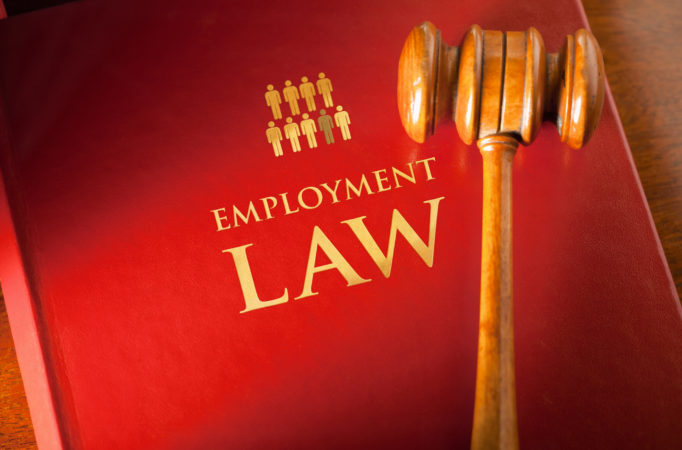Employment & Labor Law
Late Deposits of 401(k) Contributions: New DOL Procedures to Allow for “Self-Correction”
Under federal law, amounts withheld from employee paychecks as 401(k) plan contributions are required to be promptly deposited into the trust under the plan. Failure to do so requires correction by the employer and can also subject the employer to penalties. A new program of the U.S. Department of Labor (DOL) will allow employers to secure relief from such penalties without DOL review, subject to certain limitations detailed below.
Background:
DOL regulations provide that 401(k) plan contributions withheld from employees’ pay became assets of the plan as soon as they can reasonably be segregated from the employer’s general assets. This same rule applies to employee payments on a participant loan taken from the plan and being repaid via payroll withholding. Failure to deposit the withheld amounts into the trust under the plan in a timely manner constitutes a “prohibited transaction.” For this purpose, the method of determining whether deposits are timely depends on the size of the plan. For a small plan (not more than 100 participants), the DOL has prescribed a “safe harbor” of seven business days, within which deposits will be deemed to have been timely. For a large plan (more than 100 participants), there is no safe harbor. As a result, the only guidance available to large plan sponsors is anecdotal evidence - information regarding how the DOL has addressed the timeliness question in audit situations. While these situations vary, a standard of three business days is somewhat common, but there are also cases where one business day is considered to be a reasonable requirement. Also, the DOL often uses past practice of the particular employer as a means of establishing the standard. In DOL theory, if an employer has a series of payrolls with respect to which deposits were completed in one day, then all deposits should be completed within one day.
Correction:
Failures to deposit employee contributions (and loan repayments) in a timely manner occur for a variety of reasons, ranging from simple oversight to turnover of responsible employees to more serious violations, such as employers using employee money to cover business cash flow problems. Most are of the less egregious simple oversight or negligence variety. In any case, correction requires deposit of any amounts not yet deposited, plus interest to compensate the employee for the investment earnings lost as a result of the lateness of the deposits. For situations in which the DOL is involved, the DOL maintains a calculator on its website for use by employers in calculating the interest.
IRS Penalties:
Under the Internal Revenue Code, prohibited transactions (including late deposits) are subject to excise taxes equal to 15% of the amount involved, reported and payable with Forms 5330. For this purpose, the “amount involved” is not the principal of the late contributions, but rather the value of the use of the money (i.e., the interest). As a result, in cases where the late deposit amounts were relatively small and were deposited within a few days of the determined deadline, the excise taxes are usually manageable (sometimes less than the cost of the calculations and Form 5330 preparation). However, since there is no rule authorizing non-reporting and non-payment of de minimis amounts, and reporting and payment of the excise taxes (coupled with full correction) is evidence of good faith compliance, filing of the required Forms 5330 is generally recommended.
DOL Relief:
Under the federal law of ERISA, the DOL has the power to commence civil enforcement actions and to impose civil penalties with regard to prohibited transactions (including late deposits). To avoid these consequences, the DOL has since 2002 maintained a Voluntary Fiduciary Correction Program (VFCP) under which an employer can, prior to being audited, voluntarily report late deposits and the manner in which they were corrected. The DOL reviews each VFCP application, and if satisfied that all requirements (including proof of the deposit of all contributions plus interest) have been met, issues a “no action letter” by which the DOL agrees not to pursue any enforcement actions or penalties. Filing under the VFCP, as the name suggests, has never been mandatory, but the VFCP is the only avenue through which an employer can be certain of relief from DOL action. Although there is no filing fee for a VFCP application, the cost of preparation can be substantial, as the information required by the DOL can be onerous, particularly where the late deposits span several years.
Self-Correction Under VFCP:
Historically, the VFCP has never included a “self-correction” component, such as that included in the Employee Plans Compliance Resolution System (EPCRS) maintained by the IRS for the correction of errors in the operation of 401(k) plans. Therefore, the only way for an employer to secure relief, even where the amounts involved were relatively small, was to go through the full VFCP application process. On November 18, 2022, however, the DOL issued a new proposed version of the VFCP which includes a self-correction component (SCC). Under the SCC, the employer will be able to file notice of its correction of late deposits with the DOL, and thereby secure protection similar to that enjoyed with a no action letter, but without having to go through any DOL review process. Unfortunately, the SCC will not be available in all cases, as it is subject to two conditions. First, all delinquent deposits must have been remitted within 180 days of the withholding date. Second, the total lost earnings (interest) attributable to all late deposits, determined using the DOL calculator, cannot exceed $1,000. For those situations that are not eligible for SCC, the traditional VFCP application process will still be available.
Summary:
The Form 5500 return required to be filed with the DOL each year requires employers to report when any deposits have not been made in a timely manner, and the timeliness of deposits is an issue often raised by plan auditors (for sponsors of large plans required to include the report of an independent auditor with their returns). For these reasons and others, compliance with the deposit timing requirements is critical. The new version of VFCP will allow at least some employers to secure relief without going through the full VFCP application process, although the conditions for use of SCC, especially the $1,000 threshold, will substantially limit its availability. As the new version of the VFCP is subject to a public comment period and final approval, it is not actually available yet, but will be following a future DOL announcement.
For guidance on the correction of late deposits, applicable excise taxes, and relief under the VFCP, please contact Gary Gunnett at (412) 288-2210 or ggunnett@hh-law.com.
About Us
Claims and suits brought against employers by employees are a large part of the cases being handled by the Employment lawyers at Houston Harbaugh. We focus on assisting and counseling our clients to be positioned to avoid claims, and if the claims are brought, to be prepared to defend against them.

Craig M. Brooks - Practice Chair
An employment and labor attorney, Craig primarily represents management, providing advice on how to handle employee issues and actions, as well as defending or pursuing claims in court and before government agencies on matters.
An employment and labor attorney, Craig primarily represents management, providing advice on how to handle employee issues and actions, as well as defending or pursuing claims in court and before government agencies on matters including:
- Employment discrimination claims
- Wage and hour matters
- Sexual and other harassment investigations and claims
- Family and Medical Leave Act
- Wrongful discharge
- Labor/Union matters
- Restrictive covenants
- Affirmative action programs
- Defamation
- Privacy
Craig also represents individuals with advice and pursuing claims arising out of their employment.

